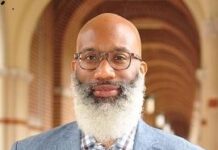 A new study by two sociologists at Rice University in Houston, Texas, finds that working African Americans who believe racism has a major impact on their lives are more likely to seek self-employment than those who feel less strongly about its effects.
A new study by two sociologists at Rice University in Houston, Texas, finds that working African Americans who believe racism has a major impact on their lives are more likely to seek self-employment than those who feel less strongly about its effects.
The researchers found that working Black adults with “racial capital,” or high awareness of the systemic nature of racism, were seven times more likely to pursue self-employment than those with low awareness. “We feel that these individuals might seek self-employment to evade racism or at least minimize its influence on their careers,” explained Asia Bento, a Ph.D. student in sociology at Rice University and lead author of the study.
But the researchers also note that self-employment did not necessarily translate into great financial success. In fact, they found self-employed Black survey respondents were generally in worse financial situations than those who were working for somebody else.
Bento is a graduate of Connecticut College, where she majored in East Asian language and culture. She holds a master’s degree in sociology from the University of Hawai’i. The co-author of the paper is Tony Brown a professor of sociology at Rice University.
The full study, “Belief in Systemic Racism and Self-Employment Status Among Working Blacks,” was published on the website of the journal Ethnic and Racial Studies. It may be accessed here.













This is what Asians (and others) have been trying to tell Black America forever. You make the necessary sacrifice and go into business or high demand professions to mitigate racism (it will NEVER go away but it can be mitigated).